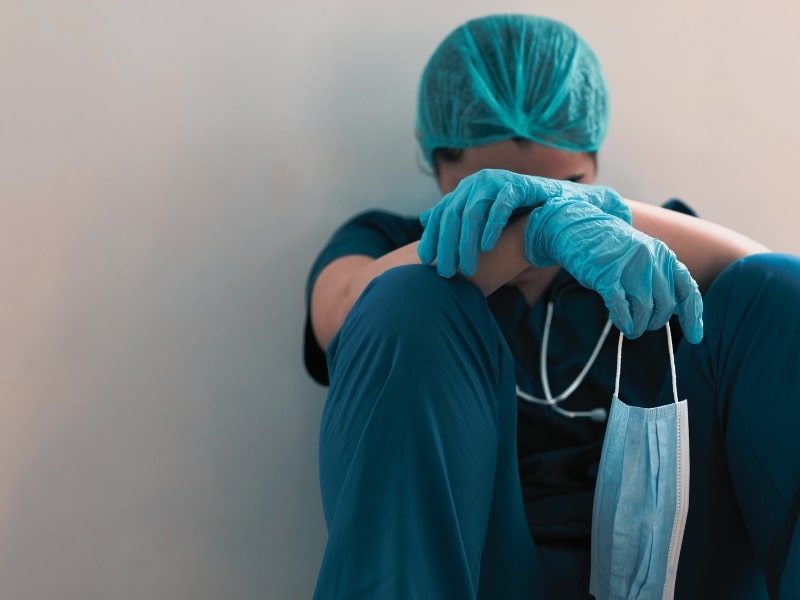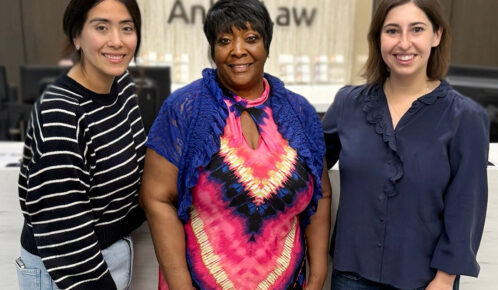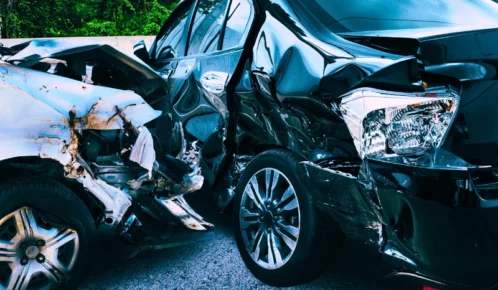From Howard Ankin
Table of Contents
Since March 2020, I have been consistently asked my opinion about filing for Illinois COVID Workers’ Compensation benefits for their, or their families, COVID-19 diagnosis, resulting medical bills, lost pay from work, long-term injuries, or death. Unfortunately, there is no straightforward answer. My office provides free consultation to anyone who calls to determine if worker’s compensation or other legal remedies are right for them. While there is never, ever an all-encompassing answer for a legal problem, if pressed for an answer as to how one should proceed after a Covid-19 diagnosis, this would be it:
If you feel your COVID-19 was contracted at work, you should file for workers’ compensation. If denied, you could then determine if short-term disability, unemployment benefits, social security disability, or other State or Federal employment laws apply to you.
I provide a short synopsis of the law which forms the basis for advising families of deceased, significant others, and individuals on the best course of action to proceed.
Illinois Workers’ Compensation provides a host of benefits, of which three are basic: medical, lost pay from work, and money for any permanent injury. To obtain benefits, an Application For Adjustment Of Claim should be filed with the Illinois Workers’ Compensation Commission. To obtain benefits, one needs to prove the injury was in the course and scope of employment and, second, the infection was causally related to work.
Proving an employee contracted COVID-19 through employment is not straightforward. It is not as easy as testifying, “I could not have contracted Covid-19 anywhere else because all I do is work, and then come home.” A disease affecting the general public requires identifying where the exposure and outbreak precipitated.
Knowing the time and resources it would take to prove a case, the Workers’ Compensation Commission attempted to help. A government agency is allowed to promulgate rules to assist with its efficiency. The Workers’ Compensation Commission on April 13, 2020, issued emergency amendment Section 9030.70 which was good for 150 days stating where an injured worker is a First Responder or Front-line worker is incapacitated from COVID-19 it is rebuttable presumed to have arisen out of and in the course of employment. Further, it is rebuttable presumed to be causally connected to work. This was a very strong rebuttable presumption favoring injured workers. My office, based on this evidentiary ruling, agreed to represent almost all who contacted us for assistance. Unfortunately, this evidentiary ruling was challenged in the courts as being not evidentiary guidance for the effectiveness of the Commission but being legislation. This emergency amendment was then withdrawn by the Commission following this court challenge.
Proving an employee contracted COVID-19 through employment is not straightforward. It is not as easy as testifying, “I could not have contracted Covid-19 anywhere else because all I do is work, and then come home.”
The Illinois Legislature, fortunately, provided some relief with House Bill 2455, which Governor J.B. Pritzker signed into law on June 5, 2020. This is codified at Public Act 0633. The law amended the Workers’ Compensation Act to say that “First Responders” and “Front-line” workers are reputably presumed to have contracted COVID-19 at work for any diagnosis of COVID-19 on or after March 9, 2020, through December 31, 2020. This end date was then extended on January 13, 2021. The law also calls for a positive laboratory test for cases on or after June 15, 2020.

If all the law required was a positive COVID-19 test and proving a certain class of occupations, obtaining benefits would have been straightforward. However, the legislature provided a host of defenses or proof for the infected worker:
First, the employee could not have been on leave or working from home for 14 or more days immediately prior to their COVID-19 exposure.
Second, the employer can overcome the presumption by applying its industry-specific protocols, prevention, and safe practices based on government guidance. The Illinois Department of Public Health and Centers for Disease Control and Prevention provides guidance to employers, but the Trump administration provided no clear guidelines. The Biden administration promulgated safety guidelines on January 21, 2021, which could assist with a more bright-line test.
To date, there are no known rulings related to COVID-19. My office’s hope is the first case tried makes sure to overcome any defenses related to exposure and causation. An epidemiologist expert could be helpful to prove exposure.
A general principle of Illinois Workers’ Compensation is that of increases next to the general public. Many of our clients are reporting that they are becoming diagnosed with Covid-19 in clusters with their fellow employees. My office feels that when we can be retained by all employees in the cluster, each will have not only their own case but will act as a witness for the others. When a certain percentage of an employer has COVID-19, and especially all within the same time period, this is very strong evidence that these employees were at an increased risk next to the general public and deserving of worker’s compensation benefits. This also is very strong evidence that the employer was not following guidelines to protect employees from the increased risk of COVID-19 disease.
In a cluster of employees the “if and come” of benefits down the road when benefits are needed immediately, sometimes filing for workers compensation benefits may not be the right decision. This is also dependent on the employee guessing correctly that the extent of their disease does not prove to be more significant in the weeks and months ahead. My office is happy to evaluate options. Our generally recommended course of action is to file a worker’s compensation application. If no benefits are forthcoming, then the file-stamped application provides the intent of the injured worker and the injured worker under duress could then seek other avenues in their time of need.
Fortunately for our Country, there are multiple vaccines starting to become available. Hopefully the distribution of these vaccines will become easier and more prevalent for all who desire. The aspiring questions asked of me is whether worker’s compensation covers employees having adverse reactions to receiving the vaccine. Fortunately, this is only conversation at this time as I have not been asked to be retained on this issue. However, I do suspect that this will become a second phase of COVID-19 Workers’ Compensation litigation, and I am open to advising and assisting if these injuries become more prolific.
Union leaders, human resource departments, medical payment counselors, and anyone else advising an injured worker about which benefits to seek following a positive COVID-19 test has their work cut out for them. Even worse is someone who exhibits all the symptoms of COVID-19 and has a negative test. As the law requires a positive finding on a test, I would recommend retaking the examination from the standpoint of seeking worker’s compensation benefits. If you feel you or someone close to you contracted COVID-19 because of work, we should discuss your situation. Some cases seem to be very straight-forward. Others, where the damages or proof is lacking, may require other avenues of recovery. We are here to provide a free assessment as to whether Illinois Workers’ Compensation may be right for you by calling us at (312) 600-0000.
Best,
Attorney Howard Ankin



